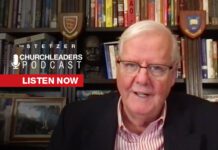“I do believe that God wants to meet the false names that we speak over ourselves or that we speak over others with his redemption. And sometimes that means just totally erasing the name, renaming us as we see him do throughout Scripture. Sometimes it means God’s redemption meets us in that hurting place, and reframes, reconstructs our understanding of a name so that it actually can bring healing and honor and glory to him.”
“The answer…is not doing more. It’s not hustling more. It’s actually just inviting Jesus in and surrendering these false names to him and asking him to minister to us. And he will, because he’s good and kind.”
“Jesus is literally personifying the Kingdom of God. He’s healing, he’s overcoming evil, he is there with power and authority, and his people, his hometown people say, ‘Oh, you know, he’s just the carpenter’s son.’”
“I never want us to lose sight of the great sinners that we are because then we understand what great of salvation we have in Jesus. I don’t want us to lose that. At the same time, I do think there’s a lot of us who have forgotten that part that God is mindful of us, that he has crowned us with glory and honor.”
“You have an explosive amount of image-bearing in you, and God has spoken dignity, delight and destiny over you. And so do not give up.”
“I didn’t want to write a book that just ended with, ‘You’re loved, you’re loved, you’re loved.’ I think that message is important. I don’t ever want to forget it, but I do want us to move out of ourselves, into our neighborhoods, into our workplaces, into our schools, into our churches, into our cities.”
“We are being discipled by our cable news, and not just our cable news, by social media, by so much. And then it’s like we’ve lost our anchor, we’ve lost our mooring.”
RELATED: Ed Stetzer: How to Pastor People in an Age of Outrage
“We can’t allow any news outlet, any political pundit, any tribe, any affiliation—we can’t allow any of those things to name who we are because those always change, the winds are so shifting and they’re so unsteady.”
“To know who you are then I think is a calling and a stewardship of being able to name others in a way that dignifies and honors them well, rather than tears them down.”
“Part of our calling as leaders is really to image God in the way that we bring order to chaos.”











